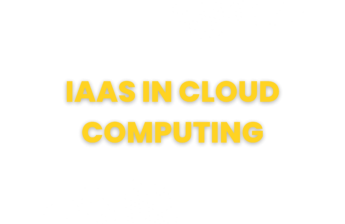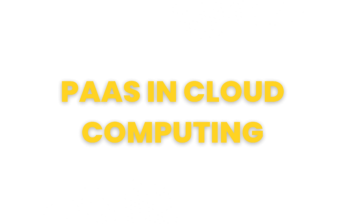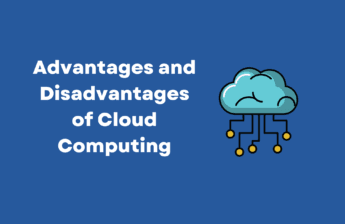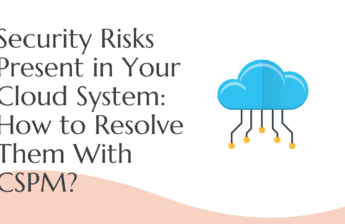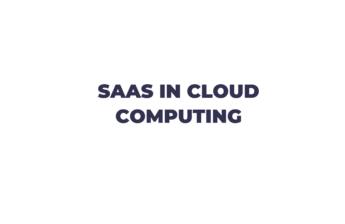The IT industry has come a long way from traditional ways of doing business to using cloud computing when it comes to IT resources. Cloud computing has occupied a decent share in the growing technological advancements. Be it sending emails and documents online, watching music or storing large amounts of pictures and videos, cloud computing has made all of this possible.
In this blog, we will cover the following:
- What is Cloud Computing?
- Who are the users of Cloud Computing?
- Types of Cloud Computing
- Public Cloud
- Private Cloud
- Hybrid Cloud
- Categories of Cloud Services
- Platform as a Service (PaaS)
- Software as a Service (SaaS)
- Infrastructure as a Service (IaaS)
- Serverless Computing
- Scope of Cloud Computing
- Future of Cloud Computing
- Career in Cloud Computing
- Cloud computing Job Roles
- Salary for Cloud Professionals
- Cloud Computing online courses
- Conclusion
Contents
What is Cloud Computing?
Cloud computing refers to the on-demand delivery of IT resources and computing services over the internet. The services include networking, analytics, intelligence and servers over the internet. The cloud service providers charge you based on the ‘pay-as-you-go’ model. Cloud computing basically provides an alternative to on-premises computing and data centres. Having an on-premise data centre requires a lot of maintenance and management efforts such as purchasing and installing the hardware, configuring, setting up the system and storage system etc. But choosing cloud computing, we can take any service on a rental basis and all the above functions are taken care of by the cloud service providers.If you wish to make your career in cloud computing, check out these Cloud Computing online courses to boost your knowledge.
Who are the users of Cloud computing?
Cloud computing services are being used by organizations of all sizes, industries and types. The organizations who need support in software development and testing, big data analytics, virtual desktops, disaster recovery etc. are also using cloud computing. For example, the Personal care and financial sector organizations leverage cloud computing usage to provide personalized services to the customers.
Types of Cloud computing
There are 3 main types of cloud- Hybrid, Public and Private. All the three types of cloud enjoy various features and benefits. We have explained about all the 3 types below:
- Public Cloud- Public Cloud platforms are the ones which are owned and managed by third party cloud providers. They deliver all the services like storage, analytics, etc over the internet. The cloud infrastructure and services are all managed and governed by the cloud provider. The users are given the access to manage the services related to their account on a web browser.
- Private Cloud– A private cloud platform is owned and used exclusively by a single party or organization and not meant for public use. However, some organizations may opt for choosing a third party provider for hosting the private cloud. Also, the infrastructure and services of a private cloud are maintained on a private network only.
- Hybrid Cloud- The combination of Public and Private clouds has resulted in what we call ‘Hybrid cloud’. Hybrid clouds permit easy movement of data and resources between the public and private cloud as the data and applications are shared between private and public clouds. Unlike private or public clouds, Hybrid cloud proves to be more flexible and efficient for managing the cloud services and infrastructure.
Categories of cloud services
Cloud services are divided into various categories just like cloud computing. The different types of cloud services are :
- Platform as a Service (PaaS)
- Software as a Service (SaaS)
- Infrastructure as a Service (IaaS)
- Serverless computing
1- Platform as a Service (PaaS)– Platform as a Service facilitates running, instantiating and managing a modular bundle of services consisting of a platform. In the case of PaaS, the complexity of maintaining and managing the infrastructure is minimized. The users are the controllers of the software deployment with minimum configuration options and it is also possible that the services can be delivered behind a firewall.
2- Software as a Service (SaaS)- With this type of service, the software applications are delivered over the internet and on demand and mostly on subscription basis. The hosting and managing of the software applications and underlying infrastructure lies with the users. Software upgrades and security system patching are also to be taken care of by the users. These functions and services are carried out over the internet, where the users are connected with the cloud through their tab, PC or mobile phones etc.
3- Infrastructure as a Service (IaaS)– IaaS is considered the most commonly used cloud computing service. With this type of service, the plan is on a rental basis and the users are charged based on the usage of the services.
4- Serverless computing- Serverless computing service is meant for use in case of specific events. The entire focus is on building the application functionality and its development with no time investment behind managing the server. The cloud provider is the one taking care of the infrastructure and server management.
Scope of Cloud Computing
As per an Economic Times report, the cloud computing market in India is expected to grow annually at a rate of 30%. More than a million job opportunities are expected to enter the market. Some of the in demand roles in the cloud computing domain are Cloud Architect, Cloud Infrastructure Engineer, Cloud Software Engineer and Cloud Enterprise Architect, etc. Let us look at some important facts and figures related to the scope of Cloud computing :
- Cloud computing services are being adopted by even small sized companies due to the flexibility of cloud deployment models available. This has also boosted the overall cloud adoption rates globally.
- According to a BVP report, 43% of enterprise apps build over $10000 a month.
- As per IBM, around 85% of new applications are stored and processed over cloud computing.
- Reports from top companies stated that the global cloud computing services market grew from $182.4 Billion in 2017 to $214.3 Billion in 2021.
- According to a recent report by Gartner, more than one-third of organizations usually witness cloud services investment as one of the key priorities.
Future of Cloud Computing
Cloud computing has made significant contributions to the IT industry. This has increased the importance of cloud computing and demand for good cloud computing professionals globally. The future of this domain and a career in the same is bright enough. There are a lot of in-office and remote jobs in Atlanta and in other parts of the U.S that offer competitive job packages for aspiring applicants in this field. The industry, which is already valued as a billion-dollar market, is expected to grow to become a trillion-dollar industry in the next 10-15 years. Gartner predicted that cloud computing will become the majority of the IT industry by 2021. So far we saw the importance and benefits of cloud computing. Now, let us look at the career options in the domain.
Career in Cloud Computing
We will now explore the various roles in demand, salary, organizations hiring cloud professionals and the various certifications required to excel in Cloud Computing.
Cloud computing Job Roles
- Cloud Architect
- Cloud Infrastructure Engineer
- Cloud Software Engineer
- Cloud Enterprise Architect
- Solutions Architect
- Technical Architect
- Development Operations Engineer (DevOps)
- Senior Solutions Architect
Salary for Cloud Professionals
- The average annual pay of a Cloud Architect in India is Rs. 19 lakhs and that in the US is USD $100,000
- A senior Cloud Architect in the USA earns an average of USD $200,000 a year.
- The national average salary for a Cloud Engineer in the USA is USD $111,165 .
Some of the top organizations hiring Cloud professionals are Amazon.com Inc., Cognizant, Capgemini, Accenture, Infosys, HCL Technologies, Ericsson, SAP Labs India, Tata Consultancy Services limited, and more.
Cloud Computing online courses
Cloud is advancing rapidly and so is the need to upskill. Some of the popular cloud certifications are:
- AWS Certified Developer Associate
- AWS Certified SysOps Administrator
- Google Certified Professional Cloud Architect
- CCSP- Certified Cloud Security Professional
- AWS Certified Solutions Architect
- CompTIA Cloud +
Conclusion
The key takeaway to this article is that Cloud has a huge impact on the IT industry and will continue doing so. Cloud computing provides a competitive advantage to organizations that has enabled them to excel and succeed in the achievement of goals. Also, there are a lot of advancements happening in this domain which also makes it a lucrative career for anybody interested in pursuing it.
Related Articles:
What is Social Computing? Definition, Examples, and Background


